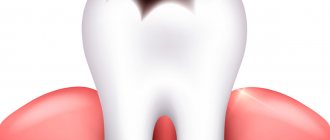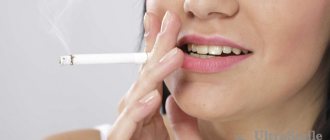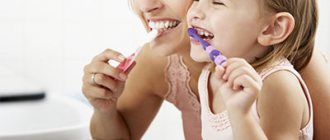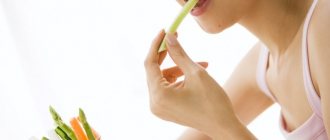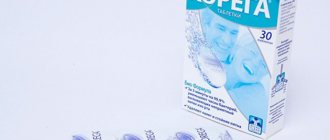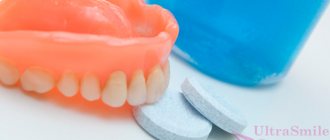Surely not everyone knows that toothpaste can be used not only for its intended purpose - to care for teeth and oral cavity. This product may be useful in some other hygiene and cosmetic procedures. For example, to combat problems with the skin of the face and décolleté. But these are very specific techniques, about which many dermatologists speak very negatively. But still, in some cases, small secrets for non-standard use of toothpaste can help solve certain appearance problems.
What substances are undesirable for facial cleansing?
Some active ingredients that may be included in oral care products can be irritating to the skin of the face.
- If your toothpaste contains sodium lauryl sulfate, triclosan, sodium fluoride, then you should note that these components have an active effect on the skin. Thus, sodium lauryl sulfate is a strong surfactant, triclosan is an antibacterial and antifungal substance with a wide spectrum of action, and sodium fluoride is a detergent, that is, an effective cleaning agent. All of them are active skin irritants, the effect of which, if possible, is only short-term and rare.
- Calcium carbonate, which can also be found in toothpaste, is a natural white food coloring.
- Zinc has a drying effect on the skin and has an antimicrobial effect.
- Gel toothpaste contains much more artificial chemical components than thick white toothpaste.
As you can see, you can’t just take the existing toothpaste from the bathroom shelf and try to solve your skin problems with it. First, carefully read its composition and decide for yourself whether it is worth resorting to such help.
Causes of gum sensitivity
The most common reasons include signs of disease and characteristics of the body or brushing teeth. Let's highlight the three most popular reasons.
Vigorous teeth brushing
Many people believe that in order to get a good cleaning, you need to press harder on the brush. And it’s even better if this brush has stiff bristles and the abrasiveness index of the paste is maximum. But if you are prone to sensitivity, this approach is especially harmful.
For thorough cleaning, soft bristles and low-abrasive paste are sufficient. And the cleaning technique does not have to be intensive. We wrote more about the techniques in the article “How to properly brush your teeth with a manual brush.”
Changes in hormone levels
Increased sensitivity of the gums is often observed in diseases of the endocrine and nervous systems, as well as in women during pregnancy. Changes in hormone levels lead to a deterioration in the blood supply to the mucous membrane. In addition, the number of bacteria in the oral cavity increases, and the enamel does not receive enough minerals.
Irritation from dental plaque
Irritation of dentin tissue is natural during the formation of dental plaque - a formation that can create an acidic environment in the oral cavity. Plaque is a mixture of bacteria, food debris, saliva and mucus with calcium and phosphate salts.
Poor hygiene leads to plaque accumulation, which pushes the gum away from the tooth. This causes redness and irritation of the gums. And subsequently gingivitis and even periodontitis.
Allergy tests
If you decide to try using toothpaste as an auxiliary means of caring for your skin and its problem areas, then first test its effect on an inconspicuous small area. Apply a very small amount of paste in the evening to the area under the chin and under the ear. After some time, remove the paste using a cotton pad soaked in warm water. Carefully inspect the places where the unusual hygiene product was located. If the skin becomes red or, on the contrary, becomes very discolored, a burning sensation appears and it begins to peel, then this toothpaste cannot be used to treat skin problems. Even while the paste is on the skin, listen carefully to your sensations - an unpleasant burning, tingling, itching sensation should alert you. It is best to immediately remove the toothpaste and not use it for other purposes.
Contraindications
A toothpaste mask should be used with caution. Due to the activity of the components, undesirable reactions may occur, so you should not use this product in the following cases:
- Sensitive skin on the face. In this case, the mask will cause irritation, redness, inflammation or burns.
- Allergies to individual components of the base.
- When you feel a burning sensation and discomfort during application.
- For deep purulent lesions on the face.
In addition, this product must be used with a break of at least 5 days.
Some rules and features
The difficulty in using toothpaste to care for facial skin is that no one can clearly say in what quantity it should be applied and how long to leave it on for an effective effect, because it is unusual to clean the skin of the face with toothpaste. Some people advise applying it directly to problem areas of the skin at night. But if you have sensitive skin, then within a few hours the paste can have a very negative effect and cause extensive irritation. If you want to use a paste to cleanse your face, use it for a short time to minimize any risk of skin damage. In addition, apply it directly to the problem area, being careful not to touch healthy skin.
"Dad is offended." Agata Muceniece about her relationship with Priluchny after the divorce
Smooth and fresh skin: dermaplaning, or why a woman needs to shave her face
Why French children behave well: eight ways to raise them
Many of those who have used toothpaste to deal with skin inflammation believe that the paste must be left on for a sufficiently long time to be effective. But if the skin is sensitive, you should not do this, since instead of inflammation you can get severe irritation, which can again result in the development of an inflammatory process. Use this non-standard method only in emergency cases.
How to properly perform oral hygiene?
- Start morning and evening hygiene by cleaning the interdental space with floss or irrigator, then use a brush and paste. The movements of the brush should be from the artificial gum to the cutting edge of the teeth. Use the brush without pressure/pressure. Finally, use the irrigator again, rinse your mouth with water or mouthwash,
- after a meal (and even a small snack) - the following hygiene complex: it is not necessary to brush your teeth, but it is necessary to thoroughly clean all the gaps in which food could get stuck - especially between the gums and the denture. Use dental floss and/or irrigator, rinse your mouth after
- if any food fragments get between the denture and the gum that you cannot eliminate with the recommended means, you must contact a dental hygienist,
- It is prohibited to use electric toothbrushes, since vibrations and excessive pressure during the cleaning process (especially in the first months after implantation) can lead to poor fixation of the implants,
- Use dental floss with caution and only use one that is marked “super floss” for dentures: the floss can damage the gums around the implant (they are less sensitive than with living teeth, and you will not be so clearly aware of when you need to stop flossing because of due to the absence of pain), bacteria can subsequently enter the tissue around the implant and lead to its rejection,
- Professional teeth cleaning should be carried out with caution and only by those specialists who have appropriate experience in hygiene in the presence of dental implants.
Following simple recommendations will significantly extend the life of implants and prostheses on them. With careful care, problems with implants will not bother you for the rest of your life.
How to wash off the paste?
If you do decide to use toothpaste, applying it to small areas of the skin to cope with inflammation, pimples, blackheads and acne, then after some time you need to wash it off. This should be done with lukewarm water, rubbing the skin in a circular motion, or with your fingertips, or with a cotton pad. Once the paste is completely removed from the skin, rinse your face with cool water to help soothe the skin. Then pat your face dry with a clean towel and apply moisturizer.
Daily washing
If you have tested for allergies to a specific type of toothpaste, tried to remove inflammation from the skin with its help, and you succeeded, then this paste can be used as a means for daily washing. Naturally, there is no need to squeeze the paste into your palm, smear it over your face, and then wash off this mask with water. If you need to use fairly harsh facial cleansing for a couple of days to get rid of acne, for example, then do so. Take a clean cup and squeeze out half a teaspoon of paste into it. Pour a small amount of water into the cup and mix well to obtain a homogeneous liquid mass. Wash your face with the resulting product, gently massaging it onto the skin. Carefully monitor your sensations - if a burning sensation begins, immediately rinse the paste with warm water. A one-time wash with an unusual product will not help get rid of the problem, but if you use it for two or three days, it will significantly improve the condition of the skin, especially if you also use medications to eliminate the problem.
It’s good to wash often: myths about shampoo and hair care that only harm
Lost weight: what Sofia Tarasova sacrificed for the sake of “VIA Gra” (new photos)
If there is little snow, there will be no harvest: December 16 is Ivan the Silent Day
After using a toothpaste-based cleanser, be sure to lubricate your skin with a nourishing or moisturizing cream.
Reviews
Judging by the reviews, a toothpaste face mask is highly effective. It copes well with acne, blackheads and pustules. The product is affordable for everyone, which is why it is so popular among teenagers, who often do not have the opportunity to buy expensive drugs.
After using a toothpaste mask, women note that their skin has become smoother, fresher, more even in color and toned. The result is almost like after an expensive salon procedure. But toothpaste is much cheaper, and it can be used as an express remedy for fresh skin before an important meeting.
In addition, toothpaste has been found to dry out the skin. Therefore, masks should not be used too often, and during the break you need to pamper your skin with nourishing fatty creams and oil-based masks.
What else will help your skin be clean and free of inflammation?
Yes, many toothpastes contain active ingredients that have anti-inflammatory, antibacterial, and drying effects. This is exactly what inflamed skin that is prone to pimples, acne, and irritation needs. But as a cosmetic product, toothpaste is not the best option. It’s better to find a suitable product for yourself from a pharmacy or a specialized department of a cosmetics store. Such products will contain salicylic acid, extracts of some medicinal plants, and bioactive components. It is better to use special care products and medications than experiment with toothpaste. Remember that dental care product should only be used in an emergency.
Why does toothpaste help with acne?
To find out whether toothpaste helps against acne, just look at its composition.
The oral hygiene product contains:
- Menthol, alcohol. They relieve swelling and redness, have a drying property, and prevent the growth of bacteria.
- Aluminum lactate. Stops the inflammatory process, narrows pores.
- Hydrogen peroxide, triclosan. They inhibit the proliferation of pathogenic flora and draw out impurities from the pores.
- Silica. Reduces signs of inflammation, heals minor damage to the integument.
- Baking soda. Normalizes the pH of the skin, tightens pores, has an exfoliating effect, and relieves inflammation.
- Chlorhexidine. Acts as an antiseptic, destroying pathogenic bacteria.
- Allantoin. Reduces pain.
- Bisabolol. It has anti-inflammatory and wound-healing properties.
Toothpaste may contain extracts of medicinal plants (aloe, chamomile, thyme, sage, oak bark, etc.). They perfectly reduce inflammation, dry the skin, destroy germs, and disinfect acne. If the product contains star anise, you can count on a reduction in the production of subcutaneous sebum, which is ideal for oily skin types.
The main thing is expert advice
If the problem of the external condition of the skin of the face and décolleté is a constant or regularly occurring problem for you, then to eliminate it you need to consult with a specialist - a dermatologist. In the vast majority of cases, this condition of the skin is caused by problems with the internal organs and systems of the human body. If necessary, the doctor will recommend consultation with specialized specialists - nutritionist, endocrinologist, hematologist. Only a specialist can prescribe oral medications - antibiotics, hormonal medications, sedatives. Medicinal plants, which are recommended by the attending physician, effectively help in solving skin problems.
“We are still friends”: Derevianko commented on the breakup with his wife
Rare shot: Viktoria Isakova showed her grown-up daughter from Yuri Moroz (new photo)
A student at the Vietnam Police Academy shared how she takes care of her facial skin.
Pregnancy with dental implants
If you had dental implantation at a young age, then you can safely prepare for pregnancy - the presence of an implant is not a contraindication (provided that the structure has already fully fused with the bone tissue). The only thing you need to pay attention to is the condition of periodontal tissues during pregnancy, since hormonal changes occur during this period and gingivitis and periodontitis often occur, i.e. inflammation of the gum tissue.
During the entire period of pregnancy, it is necessary to see your dentist and pay increased attention to hygiene (you also need to see a therapist or hygienist more often - up to 3-4 times a year). It is also advisable to take vitamin complexes (calcium, vitamin D), unless, of course, there are contraindications. But only under the strict supervision of attending physicians (dentist and gynecologist).
Tea tree
Tea tree leaf extract has been known for its antibacterial properties for centuries. Today you can buy the oil of this plant in pharmacies and cosmetics stores. Apply it with a cotton swab to the problem area - redness or pimple. The oil will have the desired therapeutic effect, while allergies to its components occur in extremely rare cases.
Papaya
Papaya seed extract is a unique remedy for facial skin. It not only helps get rid of acne and redness, but has a rejuvenating effect due to its exfoliating effect, leaving the skin filled with radiance and freshness. This is a biological process carried out through the action of a specific enzyme, papain, which affects inactive protein bonds, causing them to disintegrate, due to which the removal of dead epithelial cells occurs.
Found a violation? Report content
